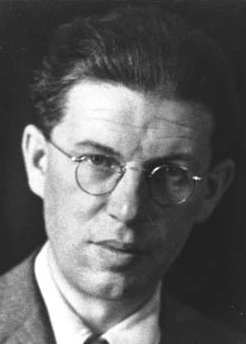Dr. Viktor Josef Matejka

Personalia
Born:
Died:
Profession:
Persecution:
Imprisonment 12.03.1938 - 02.04.1938,
Dachau concentration camp 02.04.1938 - 27.09.1939,
Flossenbürg concentration camp 27.09.1939 - 02.03.1940,
Dachau concentration camp 02.03.1940 - 06.07.1944
KZ Number:
Memberships
Curriculum Vitae
Viktor Josef Matejka was born in Korneuburg as the legitimate son of Heinrich Matejka, a wine tavern singer and later court usher, and Anna, born Barth. The family was devout Catholics. After completing elementary school and the Matura at grammar school, he first studied chemistry and then geography and history at the University of Vienna. He obtained his doctorate in 1925 and from 1926 was active as a lecturer on economic policy topics and course leader at the adult education centers in Vienna. In 1932, he married the artist and art teacher Gerda Felden.
In 1934, Viktor Matejka was appointed managing director of the Volkshochschule Volksheim Ottakring by the new, strictly anti-Nazi authoritarian corporative state regime, but in this position he tried to maintain a certain liberalism towards the previous, often social democratic lecturers. He was therefore dismissed by the mayor Richard Schmitz
On March 12, 1938, Viktor Matejka witnessed the downfall of a free and independent Austria when the German Wehrmacht invaded. He was arrested on the night of the occupation and deported on April 2, 1938 on the so-called 'Prominent Transport' to the Dachau concentration camp. After Germany's war of aggression against Poland in September 1939, Dachau concentration camp had to be evacuated at short notice for the SS, which is why he was transferred to Flossenbürg concentration camp

In Vienna, Viktor Matejka witnesses the liberation of Austria from German occupation.
After liberation, Viktor Matejka is nominated by the KPÖ for the Körner I City Senate, formed by party agreement on 17/18 April 1945, as the leading city councillor for culture and public education. The first municipal elections after the war, held on November 25, 1945, are disappointing for the KPÖ. The SPÖ achieves 58 seats, the KPÖ only six. However, the SPÖ, ÖVP and KPÖ agreed before the election to continue the cooperation between the three democratic parties. As the SPÖ relinquished one seat, Viktor Matejka was able to remain in the Körner II City Senate until 1949, now as the only KPÖ city councillor. In 1948, his marriage to Gerda Matejka-Felden broke up.
In 1949, the KPÖ was no longer included in the SPÖ-ÖVP City Senate; however, Mayor Körner thanked Viktor Matejka in his inaugural speech at the beginning of December 1949 for his extraordinary services to the cultural revival of Vienna under highly unfavorable conditions. Viktor Matejka remained a member of the municipal council as a KPÖ MP until 1954.
In 1966, Viktor Matejka retired, ending his employment with the KPÖ. He then left the KPÖ. It was not until 1973 that he left the Catholic Church. In 1975, he married Karoline Steceroicz, née Pfau, for a second time.
Places
Residence:
Persecution:
Honoring:
Citations
Wikipedia unter https://de.wikipedia.org/wiki/Viktor_Matejka
Wien Geschichte Wiki unter https://www.geschichtewiki.wien.gv.at/Viktor_Matejka
Dokumentationsarchiv des österreichischen Widerstands (DÖW)
Matricula Online
Friedhöfe Wien - Verstorbenensuche
